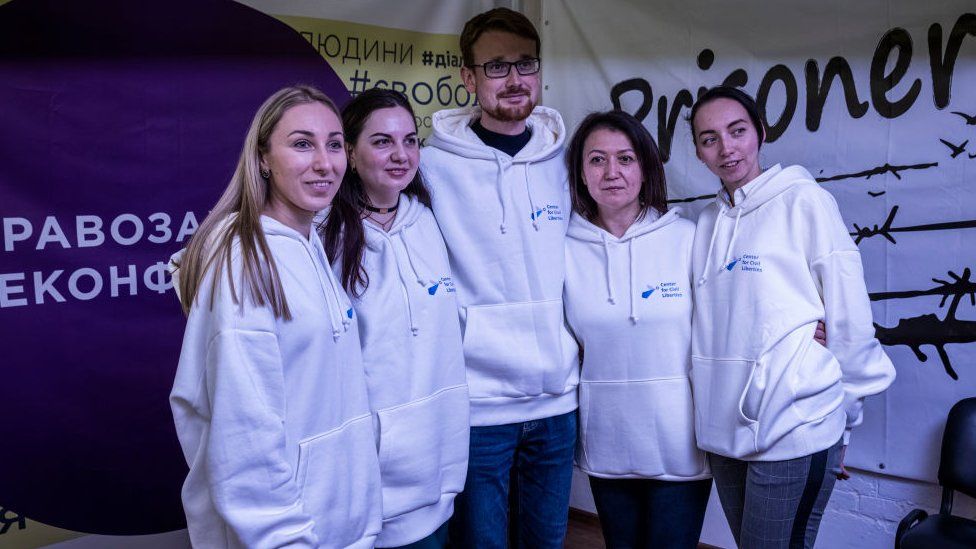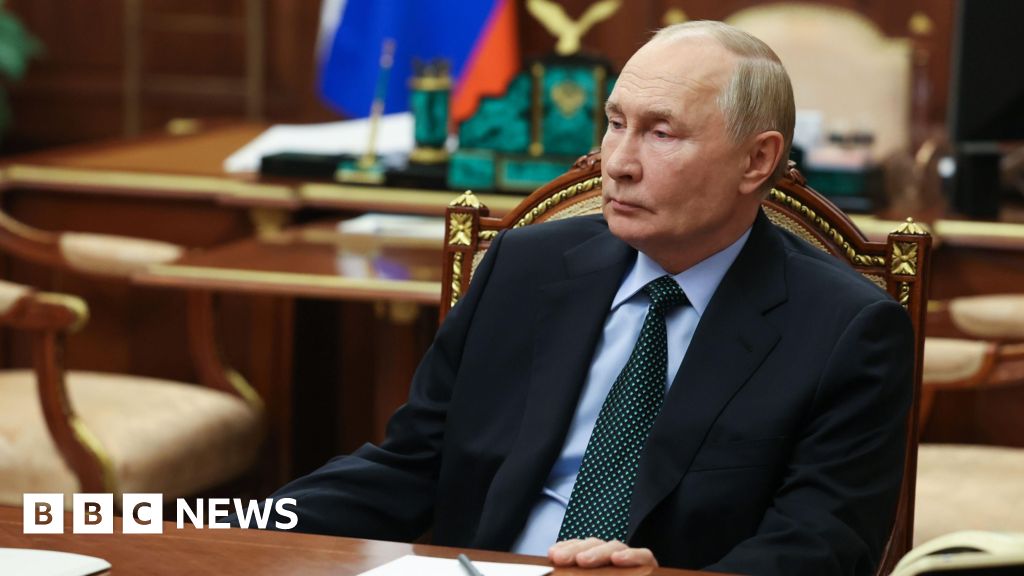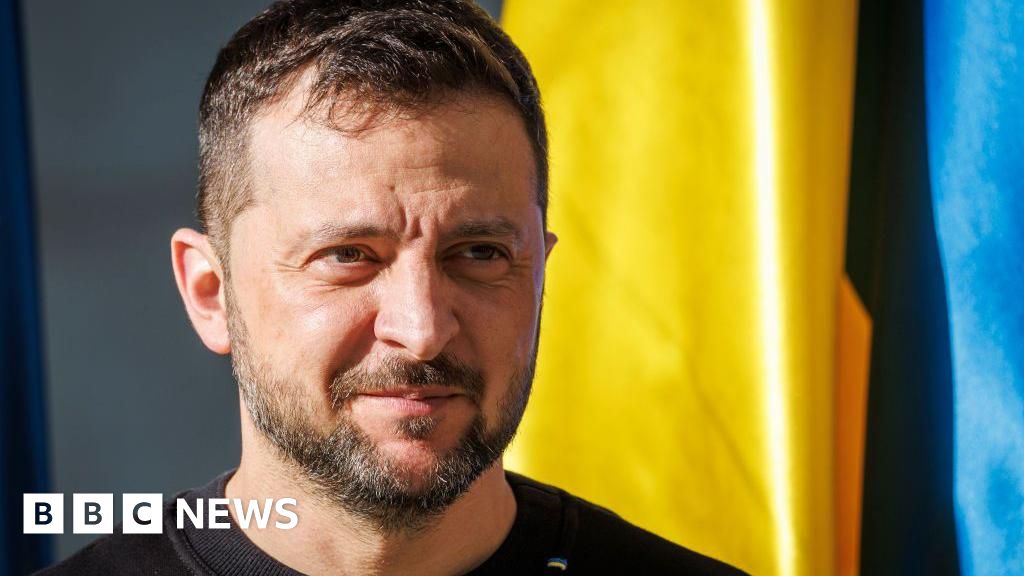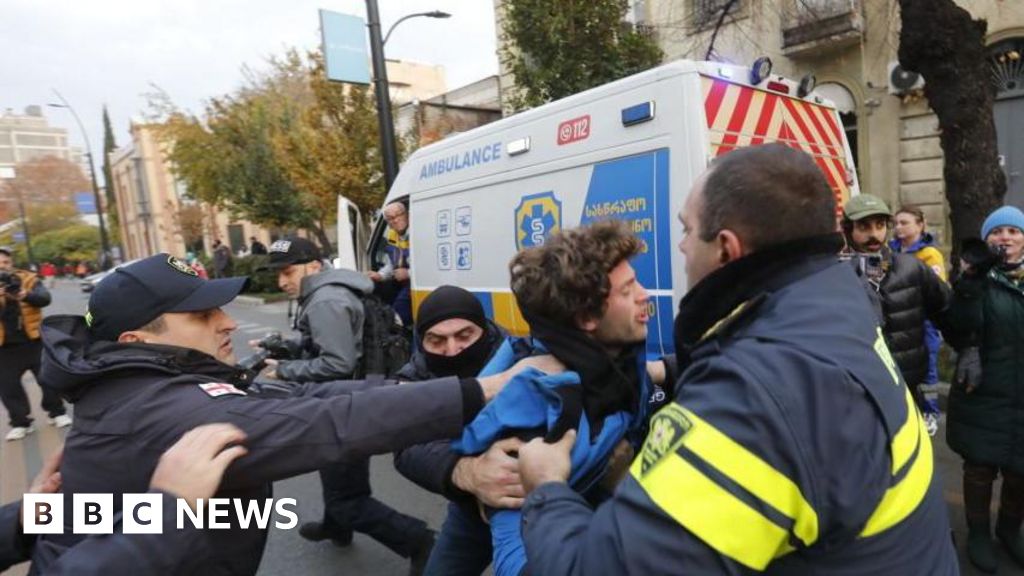ARTICLE AD BOX
 Image source, Getty Images
Image source, Getty Images
Ukraine's Centre for Civil Liberty has been documenting crimes in Russian-held areas of Ukraine for several years
A jailed Belarus activist and two groups from Ukraine and Russia have been awarded the Nobel Peace Prize for championing human rights and democracy.
The decision to honour Ales Bialiatsky, Russia's Memorial and the Ukrainian Centre for Civil Liberties comes as a rebuff to two authoritarian leaders.
Russia forced Memorial to close last December, ahead of Vladimir Putin's decision to invade Ukraine.
Bialiatsky was imprisoned amid protests against Belarus's Alexander Lukashenko.
Ukraine's CCL has monitored political persecutions and crimes against humanity in areas of the country occupied or annexed by Russia.
Norwegian Nobel Committee head Berit Reiss-Andersen told reporters that all three had made "an outstanding effort to document war crimes, human right abuses and the abuse of power".
Asked whether the committee was sending a signal to Russia's leader on his 70th birthday, she pointed out that the Nobel prize was always awarded "for something and to somebody and not against anyone".
Belarus's long-time ruler is a close ally of President Putin. After a re-election in 2020 that was widely condemned as rigged, he brutally cracked down on protesters and then allowed Russian forces to use his country as a launchpad in its war against Ukraine.
Ales Bialiatsky, 60, founded Belarus rights group Viasna, which means spring, in 1996, two years after Mr Lukashenko came to power. He was first jailed in 2011, then last year, he was detained again without charge. He is one of 1,348 people who Viasna says are currently held as political prisoners in Belarus.
Exiled opposition leader Svetlana Tikhanovskaya praised the Nobel committee's "recognition for all Belarusians fighting for freedom and democracy" and Bialiatsky's wife Natallia Pinchuk said she was "overwhelmed with emotion".
Image source, Facebook
Image caption,Ales Bialiatski has spent several years in jail in Belarus
A foreign ministry spokesman in Minsk said Alfred Nobel was "turning in his grave" following the decision to hand Bialiatsky the Nobel Peace Prize.
Memorial is one of the oldest human rights groups in Russia. Led initially by another Peace Prize laureate, Andrei Sakharov, in the late 1980s, its work uncovered the true scale of Joseph Stalin's repression in the form of Gulag camps of forced labour, where tens of millions of people are thought to have died.
But it went on to document more recent human rights abuses, including kidnappings and torture in the Russian republic of Chechnya. The head of its Chechen branch, Natalia Estemirova, was murdered in 2009.
In December 2021, Russia's Supreme Court liquidated Memorial, although it continues to operate in a harsh climate where criticism of the war in Ukraine is considered a criminal offence.
Ukraine's Centre for Civil Liberties has in recent months turned its attention to abuses committed by Russian forces, after spending the previous years documenting political persecution in Russian-annexed Crimea and crimes in areas of eastern Ukraine run by Russian-backed separatists.
The centre's head, Oleksandra Matviychuk, said she was delighted they were sharing the prize with "our friends and partners at Memorial and Viasna".
In order to give the hundreds of thousands of victims of war crimes a chance of justice, she said an international tribunal should be created to "bring Putin, Lukashenko and other war criminals to justice".
WATCH: Emotional NGO general manager learns of Nobel Prize win

 2 years ago
14
2 years ago
14








 English (US)
English (US)